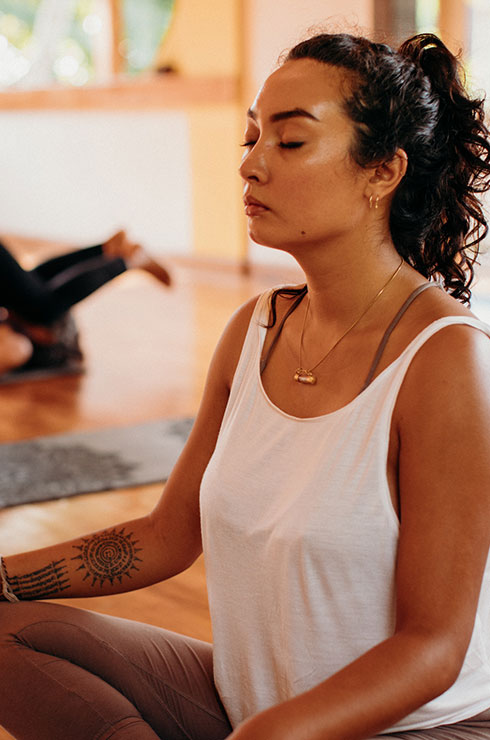300-Hour 36 Days
MEDITATION & YOGA TEACHER TRAINING COURSE IN BALI

300-Hour 36 Day
MEDITATION & YOGA TEACHER TRAINING COURSE IN BALI

Dates & Investment
Upcoming Dates
October 20 - November 24, 2024 (spots filling quickly)
May 4 - June 8, 2025
August 31 - October 5, 2025
Tuition Fee
Starting at US$3200
Secure your spot with a US$750 deposit and pay the rest later!
Each training date starts at 4pm for a welcome circle and introduction to the training. On the second last day we end at 7pm, for the graduation ceremony and a celebration dinner. The final course day is departure day.
I’ve learned more about yoga on the first day of this course than I have in all of the classes I’ve attended! This is exactly what I was looking for. Thanks!
Our Packages
Non Residential
Course fee and 3 meals per day.
Budget Shared Package
Single bed in a shared dorm for four, with a shared bath.
Budget Private Package
Single/queen bed in a private room with shared bathroom facilities.
Standard Package
Accommodation onsite in either our semi-shared Villa Mezzanine or a private cottage with bathroom and kitchenette. Offsite neighbouring accommodation in private room with private bathroom.
Comfort Package
Accommodation in a private master room in our villa with en-suite bathroom, full kitchen, living room and pool. Option for offsite accommodation in neighbouring hotel room with airconditioning and separate bathroom.
Package Pricing
Valid 6 months or more before the course begins.
6 months or less before the course begins.
SPECIAL DISCOUNT
Sign up as a pair sharing a room/bed and both of you will get 15% off the full course price. Not applicable on early bird price.
Find Early Bird prices above. This discount is valid up to 6 months before the course starts.
Refer someone who signs up for our TTC and receive 10% off of an online course and 5% off of an in-person course in Bali. Be sure to tell your friends to mention you when they contact us.
DEPOSIT
The deposit is required to reserve the room of your choice.
If you want early access, please inform us via [email protected].
Click here for photos of onsite accommodation.
Interested? Reach out!
300 HR YTT in Bali
In addition to your in-person experience, you will have access to our rich online teaching platform for 12 months. This will allow you to have ample time to practice and digest the teachings at your own pace.
The gift of yoga and meditation is so profound that this intensive teacher training course may help you to:
- Become an excellent yoga and meditation teacher
- Feel healthier in your body and mind
- Introduce amazing changes into your life that you didn’t dare to before
- Forget about the world for a while and just listen to your Self
- Discover your purpose in life
And more…One thing we know from experience; things will never be the same Feel free to see the options available out there and see what suits you best.
Your Teachers
Please contact us if you'd like to find out about the teachers of this course/retreat, their certifications and experiences.
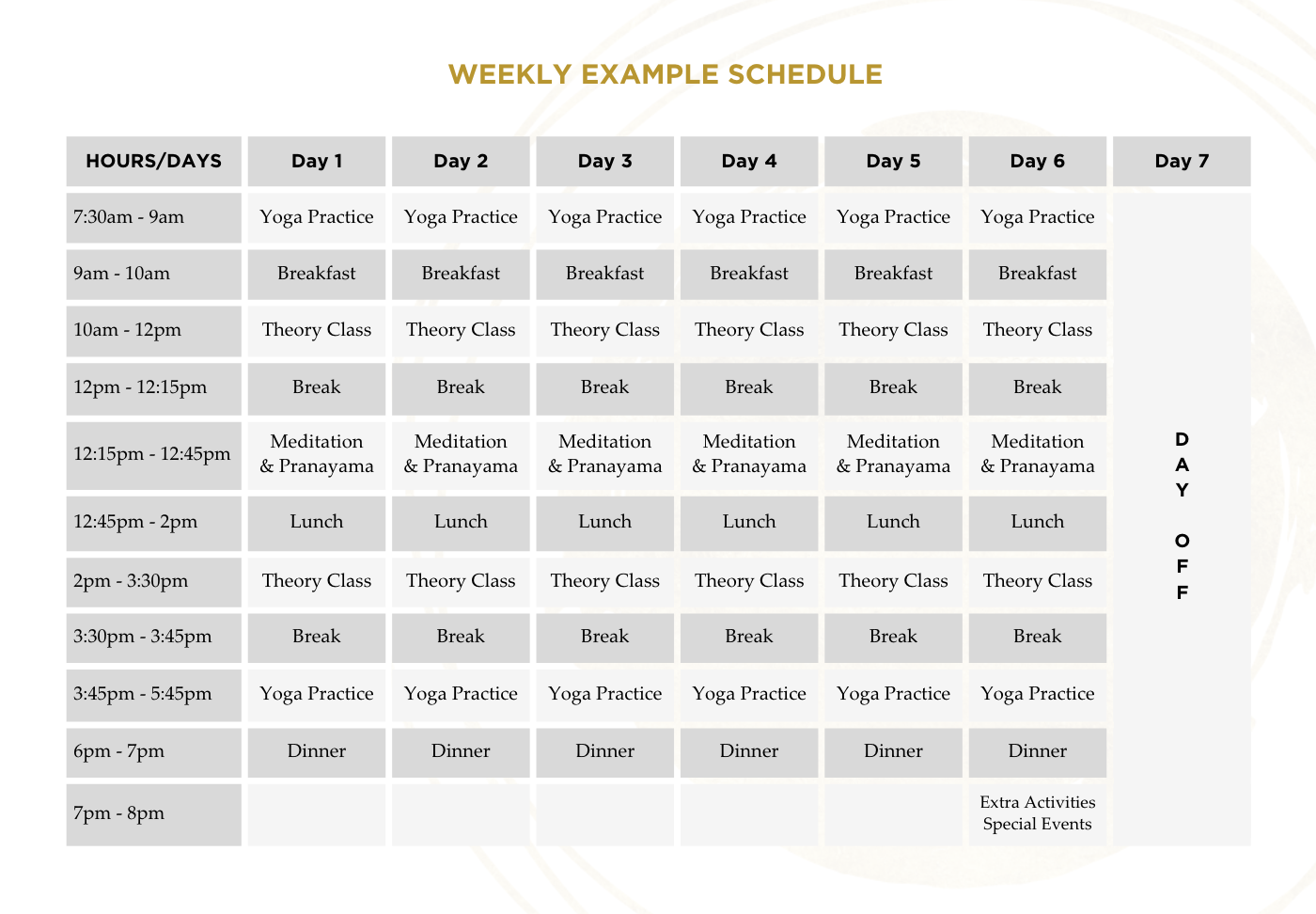
What’s Included
Payment policy
-
Fees for Teacher Training Courses must be paid in full at least 14 days before the start of the course. If balance remains unpaid and no response from the student before the start of course, the student’s spot may be offered to another student on the waiting list.
Cancellation policy
-
There will be no refund of deposits or course fees paid for cancellations made less than 14 days before the start of the course.
-
There will be no refund of deposits or course fees paid for no-shows, unless major incidents such as death or natural disaster. Force majeure incidents are at the discretion of Samyama management.
-
If a student must cancel after paying in full, the student may use that balance to book another course at a later date that starts within 24 months, minus the deposit amount. This means, the student will need to pay another deposit to compensate for the last minute cancellation.
Deposit policy
- A participant is eligible for 100% refund of a deposit if Samyama is notified at least 120 days prior to the event start date.
- A participant will be eligible for 50% refund of a deposit if Samyama is notified at least 90 days prior to the start date.
- In all circumstances, when a refund is made, transfer charges will be covered by the participant, not Samyama. This means Samyama will deduct the transfer charge from the total refund sent.
- Date change without loss of deposit is possible if Samyama is notified at least 60 days before the event starting date. We allow one date change to save your deposit. Deposit must be used for a course or service offered within 12 months.
Other policies
- No special discounts are applied on early bird or flash sale prices.
- Please note that we have limited residential spots and usually no residential spots are left for last minute booking.
Our Team
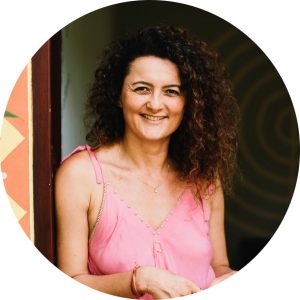
Dijan
Dijan is trained in the following areas:
Yoga therapy: After completing an 800h yoga therapist program, she offers private consultations and retreats on an international level relying on yogic techniques, ayurvedic knowledge, and different dietary disciplines.
Meditation: She is initiated in many profound forms of meditation such as mantra, yantra, laya, uccara, vipassana, hridaya, and mindfulness. Meditation is the core of her personal practice and her teaching.
Femininity: She created her holistic and mature synthesis of teachings and techniques from Tantra, Ayurveda, anthropology, and philosophy serving to understand, express, and balance the feminine nature. She is also adding her dance background into this profound work manifesting as the retreat series ‘The Feminine Way.’
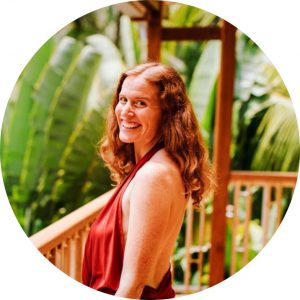
Devlin
Devlin has been teaching since 2006 and contributes her background in pedagogy and her experience with children, special needs, and at-risk populations. After spending two years apprenticing with a reiki master, tantrika, and energy healer, she decided to dive fully into spiritual teachings. In 2016 she began focusing exclusively on teaching hatha yoga, meditation, and sacred feminine arts internationally. She is a co-owner of Samyama, currently based in Bali, and thrilled to be continuing to share the gift of meditation through this Meditation & Yoga Teacher Training Course all across the world.
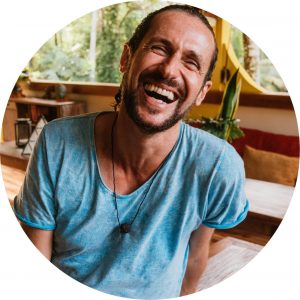
Andrea
Andrea is the founder of Samyama and a Hridaya Meditation teacher. His intention in building Samyama was to create a home for silence and stillness amidst the movement of Ubud.
What makes this TTC special?
Outstanding teachers
A venue created by practitioners for practitioners
Our unique location is tucked away in a quiet neighborhood surrounded by jungle and rice fields in tropical paradise. We are only a 5 minute drive to town but you will feel far away from the hustle and bustle.
Flexible Modules
Our program is designed so that each week is considered a stand-alone module. Each module can be taken alone as a 60hr continuing education course, or can be combined to add up to 300hrs.
Amazing healthy meals
Carefree, all inclusive packages
You will feel supported with a plant-based diet, designed especially for this journey.
Samyama’s massage therapist, steam sauna, ice bath and other Healing Center perks are available when you need some extra care.
The staff and teachers take pride in the warm family vibe we create, where everyone feels well taken care of.
The Yoga capital of the world
One-on-one attention
Everyone has their own unique journey with yoga and meditation. It’s not a one-size-fits-all kind of practice. We value the importance of one-on-one attention by keeping our group small (max 28 students), offering each student a teacher/mentor they can go to with questions, and creating a buddy system.
Our curriculum is designed in accordance with Yoga Alliance standards. Upon completion of the course, you will receive accreditation as an RYS 300 hour teacher.
More Info
What to Expect
Meditation initiations
Each week you will be guided into the depths of different and potent meditation techniques by the empowered teachers. Daily practice of each technique will help you discover which form of meditation works best for you, and give you the ability to guide your future students.
You will experience two profound retreats during this course.
- A five-day meditation retreat based on non-dual practices and the revelation of the spiritual heart. This retreat is practiced in noble silence.
- A five-day kundalini yoga and meditation retreat based on non-dual Kashmiri Shaivism and classical tantra teachings.
Modular learning
Each week will be a stand-alone course or module. This design allows you to be fully immersed in the topics that we highlight week by week.
Each course will be open to anyone who is interested, even if they are not doing the full TTC. This brings a dynamic social energy without compromising the strong container for TTC participants.
TTC participants will be provided with a clear through-line so that the modules build upon each other in a logical and engaging way.
See ‘Weekly Flows’ below for a description of each module.
Styles of yoga
You will be trained in classical poses of hatha yoga obtaining a thorough understanding of their physical, energetic, emotional, mental and spiritual effects.
Samyama MYTTC focuses primarily on tantric hatha yoga addressing the subtle energetic and spiritual effects of our practice.
In addition, we offer an introduction to vinyasa, kundalini, ‘ayuryoga,’ yin and restorative practices to round out your experience.
Please note that we place more significance on the union of mind-body-spirit than we do on physical strength, and flexibility. If you are looking for a strict alignment-based approach, we may not be the right school for you.
Anatomy, Physiology & Ayurveda
This advanced course explores the subtle anatomy of the body through in-depth exploration of the chakra and Nadi system.
The expert teachers will create experiential immersions into subtle anatomy, physiology – the nervous system from a trauma-informed perspective, and Ayurveda – the sister science of yoga.
We want you to explore yoga`s effects and functioning in our being from an experiential perspective.
Kriya techniques
Teaching and professional skills
We love sharing our passion for this path. We want you to develop all of the required teaching skills; from making adjustments/corrections, to giving effective discourses to tuning into the needs of the individual and the group.
Since many of the participants in this course are already teaching yoga, we have ample opportunities to learn from each other through practicum hours, hands-on learning and peer-to-peer feedback.
We will also support you in creating an ethical yoga business that brings abundance into your life and serves your community in the best possible way.
Philosophy and history
Besides the core texts of yoga philosophy such as the Yoga Sutras of Patanjali and the Bhagavad Gita, we will introduce tantric texts such as the Vijnana Bhairava Tantra, teachings from Advaita Vedanta, Kashmiri Shaivism, Classical tantra and more. There are so many beautiful and accessible texts that inform and inspire our meditation and yoga practice.
Horizontal elements
- Buddy system: Traveling solo? No worries. You’ll have a built in friend for support and sharing.
- Mentoring system: Each participant will be assigned a teacher they can go to with questions. Your assigned teacher/mentor will schedule a one-on-one meeting for any personal issues that you would rather address in private.
- Sharing circles: We will have optional sharing circles to support the group during this intensive journey.
- Evening activities (optional): some fun surprises to blow off some steam, sometimes literally.
We seek a balance of practice, theory and teaching formation in our program. Our Meditation & Yoga Teacher Training Course aims to help you build a solid self-practice, give you a strong understanding of the metaphysics of yoga/meditation and provide you with the skills to deliver these teachings.
Practice Components
- Concentration techniques
- Mindfulness meditation
- Walking meditation
- Music meditation
- Spiritual heart (Hridaya) meditation
- Classical Tantra: practice with mantra (sacred sound)
- Techniques from Kashmiri Shaivism
- Daily yoga and meditation practice
- Pranayama, mudra and bandha practices
- Practical application of purification techniques
Theory Components
- Philosophical basis of yoga: core scriptures such as the bhagavad gita and the yoga sutras of Patanjali; paths of yoga
- Meditation: form, practice and effects of meditation, functioning of the mind from a yogic standpoint
- Tantra: subtle energy structure of our body; pancha maya kosha, chakra system, principles of macrocosm and microcosm; energy and consciousness
- Anatomy, physiology and Ayurveda
- Teaching formation component consists of:
- Adjustments/corrections and adaptations as a yoga teacher
- Soft skills: presentation skills, holding space, teaching ethics
- Practical experience: practicum experiences with structured teacher/peer feedback
- Professional development: set-up and marketing of a yoga business
Weekly Flows
The Samyama 300hr Meditation & Yoga Teacher Training Course will run over a 5-week period with one day off per week.
Week I: From Root to Crown
- Exploration of the energy body, the 7 primary chakras and corresponding elements
- Concentration techniques, mindfulness, & Bhavana: creative contemplation
- Movement and music meditation initiations
- Immersion into Samyama’s tantric energetic hatha yoga style
- Philosophical foundations of yoga & meditation, especially focused on concepts of energy, the 5 bodies, correspondence & resonance.
Week II: Essential Ayurveda & Yoga for Health
- AyurYoga; tantra, hatha and vinyasa classes for each dosha/element
- Physical cleansing techniques from the shat karma kriya system
- Ayurvedic nutrition & food combining
- Pranayam, Mindfulness and Meditation practices for balance and health
- Fundamentals of Ayurveda: History and Philosophy, Elements, Doshas, Gunas
Week III: Spiritual Heart Silent Meditation Retreat
- Initiation to spiritual heart meditation
- 5-day silent meditation and yoga immersion
- The fundamental attitudes of meditation
- Self-inquiry & the teaching of Ramana Maharshi
- Contemplation on love and compassion
- A spiritual understanding of death
Week IV: The Art of Teaching
- Experiential teaching formation through practicums
- Tools of a Teacher: Cueing & the Voice, Sequencing & Class themes, hands-on adjustments
- Yogic entrepreneurship
- The nervous system & trauma informed teaching
- Hatha, Tantra, Vinyasa, Restorative and Yin asana classes
Week V: Kundalini Retreat
- Classical tantra initiation
- Yantra & yagna
- Further techniques from Kashmiri Shaivism
- Advanced pranayama practice
- Personal mantra sadhana
- Yoga Nidra
Daily schedule
| 7:30am – 9am | Yoga practice |
| 9am – 10am | Breakfast |
| 10am – 12pm | Theory |
| 12pm – 12:15pm | Break |
| 12:15pm – 12:45pm | Mini Practice |
| 12:45pm – 2pm | Lunch |
| 2pm – 3:30pm | Theory |
| 3:30pm – 3:45pm | Break |
| 3:45pm – 5:45pm | Yoga Practice |
| 6pm | Dinner |
Occasional evening activities (optional)
- Ice bath and steam sessions
- Bhajan (Devotional Singing)
- Women’s Circles / Men’s Circles
Get In Touch!
Interested? Reach out!
Frequently asked questions
For retreat guests and course participants
Where is Samyama located and what's the neighborhood like?
Samyama is located south of central Ubud, in the Banjar (community) of Kumbuh, Mas. We are off of a quiet road, about a 5-10 minute drive to the center of town (depending on traffic). Our neighbors include local “warungs,” or cafe’s, other resorts and villas, a fabulous health club, one of the best restaurants in Ubud and more all within walking distance. We are approximately a 1.5 hour drive from Denpasar International airport.
Do I need a visa for Bali? If so, what is the procedure?
As of February 2023, visitors from 140 countries in the world can come to Bali for 30 days for free. A Visa on Arrival costs around 500 IDR (approximately $35 USD) and is valid for 60 days. It must be extended after 30 days, which you can do yourself or hire an agent. Samyama's manager offers VISA extension services also, so you can organize with him upon arrival. If you do it yourself, you must take 3 trips to the immigration office in Denpasar. If you hire an agent, it costs more but you only have to make one trip to Denpasar.
If you are joining a TTC, we can arrange for a car to take you and other participants together, usually early in the morning so you can be back at Samyama by late morning.
Please consult an Indonesian embassy representative in your home country just to double-check. You can also contact a visa agency in Bali to check on the latest policies.
For those who want to stay longer, there are special e-visa procedures operating until further notice from the Indonesian Government. Contact an agency in Bali for more information about the B2-11 visa.
What kind of shots/immunizations should I get?
No shots or immunizations are needed for coming to Bali. Ubud is quite cosmopolitan and doesn’t have the tropical diseases that are often found in other parts of SE Asia. There are a handful of reported cases of Dengue fever each year, usually during the rainy season but it is uncommon.
How do I get to Denpasar international airport?
From Europe, the most popular connecting flights go through Doha, Dubai, Singapore, Bangkok, and Kuala Lumpur. There are non-stop flights from most cities in Australia. From the America’s, flights connect through east Asia - China, Taiwan, Japan, Korea. (Due to Coronavirus double check with your airline carrier if you have a flight that goes through China) You may find more flight paths through Jakarta, and then connect to a domestic flight. There are domestic flights between Jakarta and Denpasar almost hourly.
How do I get to Samyama? Can you arrange an airport pickup for me?
Most of our retreats and course packages include a pick-up from Denpasar airport. Make sure that you provide us with the flight information (flight number, company, expected arrival time) in detail at least one week before the retreat starts.
If you are coming from elsewhere in Bali, we will also provide a one-way transfer. As above, share details about where you need to be picked up from and when.
If you prefer to use your transfer to take you back to the airport at the end of your stay that is also possible.
What’s the weather like?
Bali’s climate varies from the coast to the mountains. Ubud is 600 meters above sea level and enjoys lower temperatures than the coast. January is often the hottest month with an average temperature of 29 degrees celsius, 84 degrees fahrenheit. July is often the coolest month with an average of 26 degrees celsius, 80 degrees fahrenheit. You will experience lovely “summer temperatures” here year round. Some of our rooms have AC, but generally a fan is enough. In the evenings you may want a light sweater or jacket. From October to March, you might find yourself in a refreshing tropical shower but it will pass. The humidity is higher during those months, however, so plan accordingly. During the dry season between April and September, it is cooler but the sun is strong so don’t forget your sunscreen.
What do I need to bring with me?
There will be towels available in each room if you are staying onsite. We also provide soap that is refilled regularly. Please bring your required set of personal hygiene items but don’t worry in case you forget something. There are plenty of shops and you can buy almost everything in Ubud, including in our very own onsite Samyama Shop which offers a humble selection of items for sale. Some things are more expensive here, such as feminine hygiene products and sunscreen. It is not hard to find organic products but they are also slightly more expensive. Comfortable and light clothes that are easy to wash and dry will come in handy for your daily practice. Otherwise you won’t need a lot of garments other than t-shirts and shorts, light dresses and skirts, and of course flip-flops. For MYTTC participants, it can be nice to graduate in white clothes but it’s not necessary. It can get cool in the evenings and early mornings, especially on the back of a motorbike so bring a light sweater or long sleeved shirt. Bring sneakers if you want to enjoy the mountain trekking the island has to offer, and don’t forget your bathing suit!
Can I buy everything in Ubud?
Yes. Prices on your typical groceries including tropical fruits are most likely to be cheaper than back home. There are many local markets as well as some international chains. Some are open 24 hours. For more information on washing your fruit and vegetables please read here. For early risers, there are local open-air markets with local prices. There is a big supermarket about an 8 minute drive, or a 20 minute walk away. It caters more to tourists so the prices are a bit higher but they have everything from groceries to clothing to electronics in case you forgot your phone charger. There are pharmacies, retail stores, organic markets and more.
How can I best respect Balinese culture?
The Balinese are generally very accepting of foreigners but there are a few important things to be mindful of when visiting Bali.
- They are very serious about their religion so it is important for men and women to wear a sarong when entering a temple. For women, an additional sash around the waste is encouraged, and please do not enter a temple if menstruating.
- Use both hands when giving and receiving, or at least use your right hand and not the left.
- Use your entire hand if you want to point at something instead of your index finger. If you need to call attention to someone, do it by extending your hand and, with palm facing down making a downward wave
- Remove your shoes wherever you see a row of shoes placed outside.
- Do not put your feet on the table or point your feet at another person.
- Please respect the daily offerings of flowers and food that are placed on the street by not kicking or stepping on them.
- In general Balinese do not outwardly express anger or frustration towards strangers. Instead you will be warmly met if you are friendly and smiling.
- Don't touch people's heads. The soul is supposed to reside in one's head, making it off limits for people to touch. Even children (Balinese children that is) should not be touched on their heads.
- Don't step on offerings in the street. Canang sari are offered to the Creator by locals first thing in the morning. When stepping out, you'll find these little packages of woven palm leaf, flowers and herbs everywhere, even on sidewalks and stairs. Stepping on one can be deeply offensive to any Balinese who witnesses your misstep. So watch where you go around Bali, especially in the earlier part of the day.
- Don't interrupt any religious processions. Religious processions in Bali occur fairly regularly so if you're stuck behind a procession on a narrow road, do not honk your horn, or be very obtrusive.
How many students will be on my course?
The maximum number of students on a course is 28. Limiting intake size to 28 students allows for a more student-centered approach, offering increased support, attention, and feedback, whilst still building a sense of community.
Do I need to bring a yoga mat and towel?
Yoga mats and other supplies are available at our center, though feel free to bring your own. When using the Samyama mats, we recommend bringing a sarong to place on top of the mats for hygiene purposes. Fresh towels are also provided both in your rooms and in the healing center. If you are joining a TTC we will provide you with a sarong that you can use throughout the course and take home with you.
Are there mosquitoes?
Perhaps because of our location, mosquitos are not a big problem here, but they do live here, yes. There may be more during the rainy season, though they only come out for about an hour around sunset and sunrise. We have extra natural mosquito repellant onsite for morning and evening practice and natural and chemical repellant can be purchased in any pharmacy or market nearby.
What about internet and local mobile?
You can easily acquire a prepaid local SIM card at the airport or in town. All SIM cards are 4G ready allowing you to browse the Internet at very reasonable speed and rates. There’s also free WiFi at Samyama. The country code of Indonesia is +62 (=0062) and the area code of South Bali is 036. If you call a local Bali number from a foreign phone you add ‘0062 36’ (dropping the initial 0 of the local number). Simple mobile phones are affordable, and Bali SIM cards are cheap. You can buy prepaid top up cards for reasonably priced calls in and out of Indonesia in any phone shop or market (Indomaret, Coco Mart etc). Telkomsel and Simpati are good providers. A sim card with 5-10 GB shouldn’t be more than 100k IDR.
Do you have laundry facilities?
We do not have laundry facilities on site, but there is a reliable laundromat a few steps down the road from Samyama. You can drop off and pick up the next day, or arrange for delivery with our staff onsite. Rates for doing laundry are quite cheap. When using outside service providers, it’s best to avoid bringing expensive clothes just to be on a safe side. If you prefer to hand wash your garments, there are some drying racks in the villa and outside our onsite rooms.
Is there a hospital or clinic nearby?
In case you need medical assistance, there’s some options near Samyama:
Ari Canti hospital and Kenak Medika have an international in-patient service and we’ve received very good feedback from both.
Hospital Ari Canti
(0361) 974573
https://maps.app.goo.gl/ZCCWq8sxDmUPymyP8?g_st=iw
Kenak Medika Hospital
0811-3930-911
https://maps.app.goo.gl/AiyakfejPQyG2SL69?g_st=ic
Also a convenient option for smaller matters is Ubud Care, who also do home visits.
UbudCare Clinic (24 Hours)
0811-3977-911
https://maps.app.goo.gl/WY9wQa1tjaowBZ5c6?g_st=iw
What is the local currency and how much money will I need?
Local currency in Bali is the Indonesian Rupiah. Unless you want to avoid international ATM fees, you don’t need to bring a lot of cash with you. Banking infrastructure is well developed in Bali. Most businesses and restaurants accept credit/debit cards with a minor surcharge. Samyama accepts cash, credit/debit cards with a 3% surcharge, PayPal and TransferWise/Direct Bank Transfer.
If you are joining our TTC, you will not need much cash as all of your basic needs will be taken care of. You will need to pay for your meals on the 4 off-days, including the evening of the opening circle.
You can choose to live very cheaply here or very lavishly if you want to. As an example, lunch at the local warung (balinese eatery) may cost you $2, while lunch at one of the organic, raw, vegan spots that Ubud is famous for can cost you $7 - $12. If you want to explore you may want to rent a motorbike. This will cost from $40 - $70 per month depending on the model you rent, though gas is quite cheap. If you want to shop, note that imported items will be more expensive than you will find in your home country. Other items made in Bali will often be much cheaper.
Where is the closest ATM?
There is an ATM at Titi Batu Health Club, just down the road from Samyama. There are many ATMs in town that accept all types of cards, VISA and Mastercard preferred. You can also easily exchange your home currency at the airport or at any bank or money exchange in Ubud.
How do I settle my remaining balance?
Our preferred method is Wise. If you are unfamiliar with Wise, it is an App accessible on your phone or web browser that simplifies international bank transfers and has some of the best currency exchange rates. Simply find your preferred currency to transfer money directly from your bank account. If you use a different currency than USD, then Wise is encouraged due to its favorable exchange rates and low fees compared to bank fees.
If needed, we accept PayPal but we charge an additional 5% to cover the high PayPal service fees. Please let us know how you would like to pay and we will send you the corresponding payment details.
All remaining balances need to be paid one week before the course start.
Will I need an electrical adapter?
In Indonesia the power plugs and sockets are of type C and F - the two pronged round ones. The standard voltage is 220/230 V and the standard frequency is 50 Hz. If you are coming from Europe, you won’t need an adapter but travelers from the US will need one. Adapters may be available on request and can be purchased in town at a low cost.
What kind of insurance do I need?
We strongly recommend purchasing travel insurance before leaving your home country. If you intend to ride a motorbike, you may want to check that the insurance you choose covers motorbike accidents. In order to drive a scooter here you will need to possess an international drivers license, wear a helmet and have a copy of the bike papers on you. Otherwise, you'll find yourself paying fines when stopped by police. If you do get fined, ask for the official catalog of fines and know that there's room for negotiation. I also recommend to only have a limited amount of cash on you or to say so to the police officer. Samyama is not responsible for any loss of belongings or injuries incurred while on-site.
What does Samyama mean?
Samyama is the state of absorption into the object of meditation where the three stages of concentration, meditation and samadhi happen at once.
What food will I be eating?
Samyama Eatery will be lovingly providing your meals throughout the duration of the TTC's and retreats. They offer a range of hot and cold dishes prepared with the freshest local ingredients, using organic produce whenever possible. All meals will be 100% vegan to keep you aligned with the yogic principle of Ahimsa: Do no harm. Most meals will be served buffet style and will vary daily. Drinks will also be included. A-la-carte menus are also available. The restaurant is open from 8am - 8pm and you can order additional food, drinks and desserts anytime during open hours.
Can you accommodate special dietary requirements?
Our onsite restaurant is plant-based, almost entirely organic, and has gluten free options. We will ask for your dietary restrictions before you arrive and plan an appropriate menu with our kitchen in advance. We do accommodate some basic needs such as gluten-free food but for very specific needs you may need to come prepared bringing your special supplements or food items with you.
Is there a refrigerator I can use?
Yes. We have a small shared fridge in our lounge area. If you are staying in the Samyama villa, you will have access to the shared kitchen and fridge. Private cottages have small kitchenettes as do many of the neighboring resorts that you may choose to stay at.
What time does the TTC start on the first day? And when do I have to check-in?
The first day of our TTC is Day 0, or arrival day. This is when you check-in and meet the instructors and other participants in our Welcome Circle in the afternoon. Exact timing will be communicated in our ‘students & instructors Whatsapp group’ closer to time.
Check-in is from 2pm on day 0 or beforehand if arranged otherwise. Some participants prefer to come a few days earlier to rest before the course starts. That is completely up to you. Contact us if you would like to book extra nights before or after the course.
Day 1 starts early the next morning and this is when your included meals begin. On arrival day, you can order meals a-la-carte from the restaurant but there will be no buffet service.
Can I arrive early to the TTC or stay late?
It depends on the dates of the course you are attending. It is very likely that this is possible but it depends on the schedule of the center. Please contact Samyama if you would like to book extra nights at [email protected]
Will I have time during the TTC to visit Ubud? How do I get there?
Yes. In the evenings you will have free time to go into town if you'd like. You will also have a day off every week and we recommend exploring some of the beauty and culture that Ubud and Bali has to offer.
You can rent a motorbike for daily, weekly or monthly rates, or hire drivers, though if you've never driven one before, we don't recommend learning during the TTC.
We have reliable local drivers who we work with who we can recommend. You can ask our staff for assistance when booking a car or motorbike taxi, or simply walk up the street to a local taxi stand. For quick trips into town, motorbike taxis are recommended.
Recommended Drivers
Made (pronounced Ma-Day): +62 822-3778-6930
Ketut +62 821-4457-9031
Go-Jek and Grab have drivers too and make it very easy to get around, but due to local competition, they are not welcome in every neighborhood. We prefer to support the locals first, but when needed the apps are also an option.
How can I prepare myself best for the TTC? Is there anything I have to read?
There is not a 'must-read' list but if you'd like to be inspired, here are some suggestions:
- T.K.V. Desikachar: The Heart of Yoga
- Paramahansa Yogananda: Autobiography of a Yogi
- Mark Stephens: Yoga Sequencing
- Mark Stephens: Yoga Adjustments
- Ray Long: Anatomy of the Key Poses of Hatha Yoga
- Swami Satyananada Saraswati: Hatha Yoga Pradipika
- Christopher Isherwood: The Bhagavad Gita
- Harish Johari: The Chakras
- Swami Rama: The Art of Joyful Living
- Eckart Tolle: The Power of Now
- Swami Chidananda: Path to Blessedness
What style of yoga or lineage will I be learning in the TTC?
You will be trained in major, classical poses of Hatha yoga obtaining a thorough understanding of their physical, energetic, emotional, mental and spiritual effects.
Samyama MYTTC focuses primarily on tantric hatha yoga addressing the subtle energetic and spiritual effects of our practice. In addition, we offer an introduction to vinyasa, restorative, and yin practices to round out your experience.
You will also be initiated in the following methods:
- Concentration techniques
- Mindfulness meditation
- Walking meditation
- Music meditation
- Spiritual heart (Hridaya) meditation
- Classical Tantra: mantra (sacred sound), yantra (sacred geometry), Kriya (purification) and yagna (Fire ceremony)
- Meditation techniques from Kashmiri Shaivism
- Daily yoga and meditation practice including pranayama, mudra and bandha practices
- Practical application of purification techniques
How much yoga will I be doing during a TTC? What if I’m a beginner?
We have 2 yoga asana practices per day; each one will usually start with the introduction of a technique and continue with practice of the studied asana, pranayama and meditation techniques. We find it suitable for all levels of practitioners for the following reasons:
- We will progress gradually in terms of physical complexity and mental concentration making it accessible to beginners of yoga
- We will elaborate on esoteric effects and meaning of all techniques introduced which are very stimulating for intermediate and advanced practitioners.
Will I be prepared /qualified to teach when I finish the TTC?
Successful completion of MYTTC grants you the credentials to be a yoga teacher and start teaching immediately. You will also be able to teach most of the meditation techniques we will share with you. Some techniques require a special empowerment and they remain for you to experience only during this course.
That being said, we invite practitioners of all levels to have a humble attitude towards becoming a yoga teacher. Please remember that you are taking a good, solid step on the path but we are students forever. Especially if you don't have a personal practice established already, give yourself time after the TTC to integrate yoga into your daily life. Even if you jump into teaching immediately using this great momentum, always keep a personal practice.
Our certification grants you eligibility to become a Registered Yoga Teacher 200h at Yoga Alliance.
Will I need to apply for Yoga Alliance separately?
Yes. Yoga Alliance requires every certified graduate from an accredited school to apply directly to them via their website. They have a clearly structured system around this. Feel free to check their website for more information. We will also provide you with the necessary links after the course.
Can I take the TTC to deepen my practice if I don’t plan to teach?
Absolutely! If you are not interested in receiving a teacher certificate you can just join it as a long retreat which will definitely serve you on many levels.
How much time will I need to spend on homework?
We have reserved a total of 25h from our curriculum for self-study and some minor homework.
Do you have participants from different cultures and backgrounds?
Yes. People come to Ubud and to Samyama from all over the world. We practice inclusivity and all genders, races, ethnicities, sexual orientations and more are welcome here.
Who are the teachers? What are their credentials and experience?
You will have a team of 4 main teachers for the TTC's, plus some supporting teachers. Lead and supporting teachers rotate depending on the level of the retreat. All lead teachers are Yoga Alliance certified and registered and have a combined teaching experience of >8000 hours. If you'd like to find out more about the teachers of the course on the dates you're interested in, contact us HERE.

